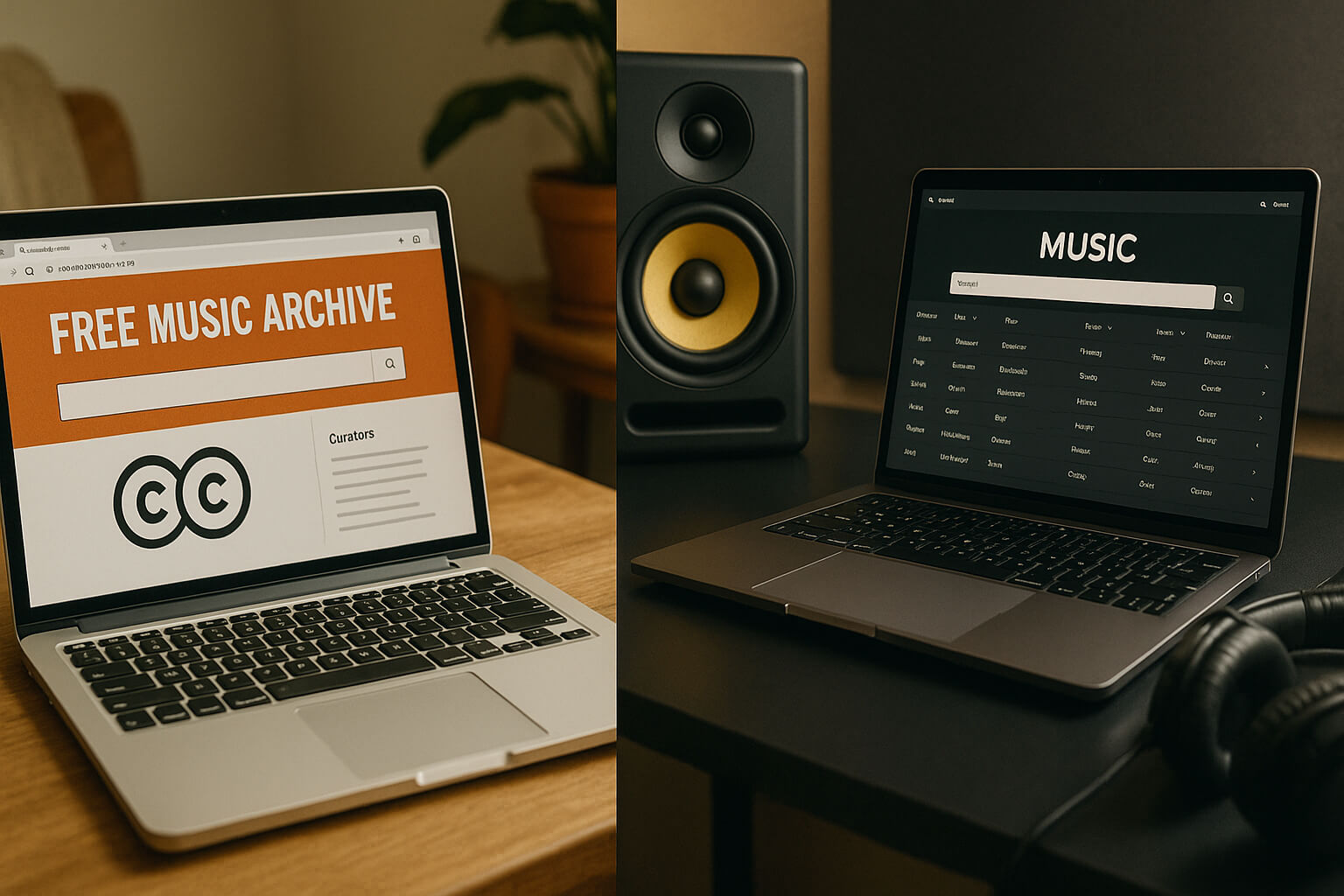August 13, 2025

Music is the heartbeat of modern content creation. From cinematic short films to engaging YouTube vlogs, music shapes the mood, enhances storytelling, and influences audience retention. But as a creator, where should you source your music—Free Music Archives or Commercial Music Libraries? Both offer distinct advantages depending on your goals, budget, and the type of content you're producing.
In this guide, we’ll explore both options in depth, breaking down the pros, cons, key differences, use cases, and even future trends—along with expert insights and practical resources to support your music journey.
Free Music Archives (FMAs) are online platforms offering royalty-free tracks, typically shared under Creative Commons licenses. These tracks are often contributed by independent artists who want to share their music with others for free or under flexible terms.
Popular FMAs include:
For a deep dive into how music licensing works—including royalty-free vs. copyright-free music—check out RocketPages' guide to licensing.
Pros of FMAs:
Cons:
Want to learn how to critically listen to music to evaluate tracks more effectively? Try this helpful resource: How to Critically Listen to Music – RocketPages.
Commercial libraries provide professionally curated and high-fidelity tracks under clearly defined licenses. They’re used by broadcasters, ad agencies, and pro creators who require clarity, consistency, and legal safety.
Top platforms include:
Pros:
Cons:
Need help building your own music workflow? Check out RocketPages’ guide to Digital Audio Workstations (DAWs).
1. Cost and Budget:
2. Legal Safety:
For more on protecting your content, see RocketPages' best practices for YouTube music licensing.
3. Originality and Exclusivity:
4. Technical Support & Extras:
Want better sound control? Learn about understanding equalization (EQ) to customize music for your mix.
Or learn more about how music royalties actually work.
Choosing between Free Music Archives and Commercial Libraries depends on your:
If you're just starting out, FMAs can be incredibly helpful. But if you're serious about your brand or monetizing your content, commercial libraries offer peace of mind, professional polish, and exclusive advantages.
Stay up to date with the latest tips, expert insights, product reviews, and step-by-step guides to help you grow, create, and succeed—no matter your industry or passion.